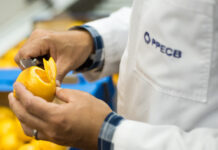With one of the world’s highest alcohol consumption levels, South Africa rivals countries around the world known for their drinking. This has prompted the Western Cape Government into considering new ways to curb binge drinking, including introducing a minimum unit price (MUP).
A study conducted by the School of Economics at the University of Cape Town (UCT), on behalf of the Western Cape Government, has researched various price-based interventions to reduce abusive drinking in the province.
Some of the methods researched included increasing excise taxes or introducing a minimum unit price for alcohol. The study showed that if the cost of alcohol increased like it has in other countries, the consumption decreases.
According to the study, the pattern of drinking is not determined, primarily, by the quantity of alcohol consumed, but by how it is consumed. For example, drinking is flagged as dangerous if alcohol is typically consumed outside of mealtimes, out of the home, and to get drunk.
“Research indicates that a 10% increase in the price of alcohol will reduce alcohol consumption by about 4% among moderate drinkers, but only by about 2% to 2.5% among binge drinkers, and 1.5% to 2% among other heavy drinkers.”
In May 2018, Scotland introduced a minimum unit price of 50p per unit (8g) of alcohol, with the aim of reducing abusive drinking.
The most effective way to reduce abusive drinking, according to the study, is to impose a minimum unit price on alcohol, similar to the Scottish model. Research shows that, even though binge drinkers and other heavy drinkers are less responsive to changes in the price of alcohol, the imposition of an MUP is likely to have a much larger impact on their consumption. The reason is that binge drinkers and other heavy drinkers, drink such cheap alcohol that a minimum unit price will substantially increase the price that they would have to pay.
South Africa’s situation is at least as bad as Scotland’s. Although only about one third of South African adults say they have ever consumed alcohol, nearly half of those that do, drink at dangerous levels. According to the World Health Organisation (WHO), South Africa scores a four out of five for our “pattern of drinking”, beaten only by heavy-drinking Russia and Ukraine.
The analysis done by the university indicates that if a R6 minimum unit price were instituted per standard drink, it would decrease alcohol consumption by 6.2% among binge drinkers, by 15.5% among other heavy drinkers, and by 4.6% among moderate drinkers.
While the methods for reducing our country’s drinking problem are not yet decided a MUP could be just one of the many methods used in future.















